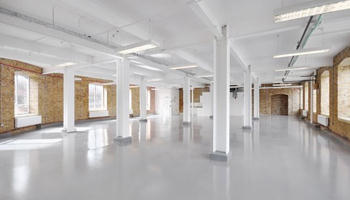

When the storm clouds gather, and news headlines proclaim tough trading conditions ahead, company directors and managers across the country look at ways of shoring up their businesses during the rainy season.
The challenges for business therefore - of all shapes and sizes – are many. But key amongst these will be how to navigate through difficult and constantly changing economic conditions, and how to keep your business flexible, to be ready to jump at opportunity when the climate improves.
There is no easy answer, and for each business, there is a different solution. A wholesale review of the fixed overheads, and an examination of where and how these can be altered is, however, where most will start. And as part of this process, a real estate review will be crucial.
Selecting the right premises - on the right terms - is absolutely fundamental to the ability of a business to survive and prosper in the current conditions. It is also one of the areas of business management that will have the greatest impact on maintaining optimum flexibility.
Put simply, companies have to have an exit route. The ability to change the size and shape of the workplace is critical in assisting the development of a company, as is the ability to move out altogether when the time is right – not just when the lease expires or the long-term contract dictates. Historically, occupiers have been forced into major long-term leasing commitments on fixed amounts of space, with onerous break clauses and penalties and the constraints on their business have been clear. It is a bizarre thought that, like goldfish in a bowl, many companies just grow to the size or shape that their property allows them to – and no more.
Happily, there have been significant advancements in the property industry over the past 15-20 years, with the evolution of managed business centres covering a whole spectrum from fully serviced offices to managed workspace.
In contrast to the traditional real estate commitment of a long lease on a set amount of floorspace, managed business centres offer total flexibility. Leases may be negotiated for a period of just three months, with all occupational costs and office amenities included in the figure.
This means that not only is total flexibility provided in the physical accommodation, and the occupier can move, expand or contract at a moments notice, but that total convenience is also provided. With transparent costs so there are no hidden charges for the occupier to have to factor in (such as rates or service charges) and support services available, the occupier is free to focus 100% on the development of the business, rather than the management of the property.
One sector of the UK business spectrum that has been quick to spot the advantages of the managed business centre environment are the small and medium enterprises (SMEs).
Interestingly, while some will be affected by the current economic uncertainties, the SME sector as a whole tends to be very resilient. History shows us that in the major recession of the early 1990s, it was the SMEs that weathered the downturn the best, with their positive, problem-solving attitudes, and their innovative approach to managing their business to maintain flexibility. It is no coincidence that their preference for managed office space has played a large part in this.
With this support, the managed business centre sector itself has undergone major growth in recent years, a trend which shows no sign of slowing down. There are currently around 650 bca (Business Centre Association) member locations across the UK, providing over 40 million sq ft of office space to 40,000 SME-sized companies, and the sector is forecast to experience an overall growth of 3% over the course of the next twelve months.
It only takes a minor change of economic fortune for larger companies and corporates to re-examine their property requirements, too, and re-consider the merits of entering into long-term commitments during, potentially, a falling market. Plus, in any downturn, the nature of business changes, and much of the commercial world becomes more risk-averse and more short-term in its approach. This will often lead to shorter-term contracts, requiring companies to resource accordingly, which in turn, will prompt the requirement for satellite offices as companies draft teams up to fulfil these "open and closed" projects. Once again, the managed business centre will provide a quick, cost-effective and flexible solution.
In summary, setting up and/or managing a business will always have its risks. Setting up and/or managing a business during uncertain economic times will have far greater risks – so the trick, in as much as there can be one, is to minimise the risk factors as far as possible. A long-term commitment on a property that ultimately could constrain the business, or is impossible to reduce should circumstances change, is, at the moment, an unacceptable risk. To put this in human resources terms, what company would commit to an employment contract – with a penalty for breaking it - for a minimum of five years?
It is no surprise that more and more companies are turning to managed business centres as a means of minimising risk and maintaining flexibility. What will be interesting to note, however, as the economy turns the corner and begins to grow again, is how quickly (and which) UK business are in the strongest position to respond to it.
By Tom Stokes, FRICS
Tom Stokes, FRICS, was managing director of Evans Easyspace Ltd, a managed workspace company originally set up by the Evans Property Group. He is also a past chairman of the Business Centre Association (bca).





As we cannot be experts in every relevant subject, we would love to receive 'guest' articles that may be of interest to anyone running their own business or thinking of doing so. ADD YOUR ARTICLE